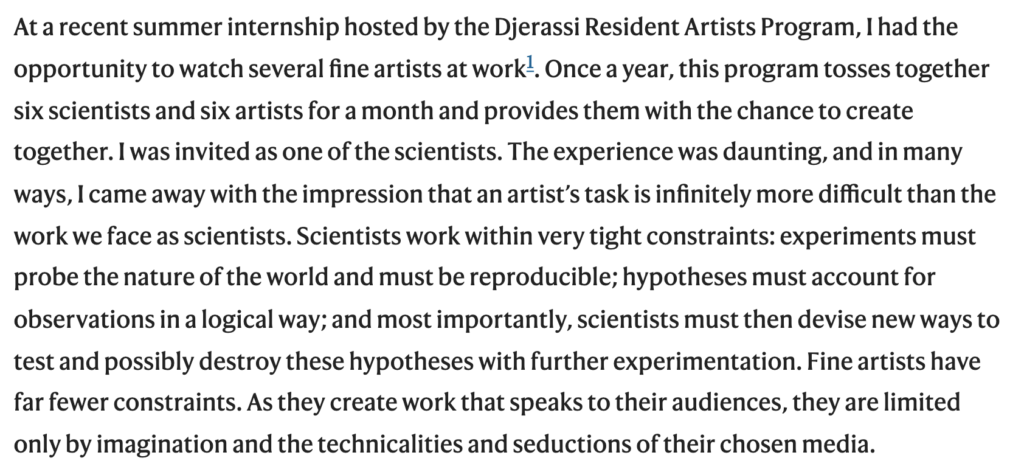Introduction
http://mshuntersdpartroom.weebly.com/visual-arts–tok.html
Knowledge Questions
Do all art forms (literature, painting, music, sculpture, architecture, dance etc) use a language?
When does it become conceptual/abstract art?
How do you know?
How can you evaluate art through a male gaze/ feminist perspective?
How important is it that the artist intention be perceived or understood by the audience?
Should art be beautiful?
Must true art be recognised by experts?
Can art give us knowledge?
How can art reflect accurately reflect contemporary culture?
To what extent is creativity linked to reason?
Can art help us to understand individuals and societies?
Should the arts have an ethical function?
If an author justifies their work, can we trust the knowledge?
How true is it to say, ‘what constitutes art is relative to the individual time and place’?
Does perception affect creativity?
How does prior learning or experience influence our interpretation of art?
How is abstract art valued?
What is the role of the artist in producing abstract art?
Quotes
From Michael Dunn’s https://theoryofknowledge.net/
Thinkers
JR and Art
Janet Echelman and Imagination
Evelyn Glennie and Music
Michael Tilsen Thomas and Music
Articles
A Guardian article discussing the work of Bruce Nauman and the themes his artwork explores.
A BBC article, looking at how art and literature can help predict the way society and understanding develops.
A BBC article on how London Underground cleaners erased Banksy‘s work without knowing the origin. Did they not see it as art? Were they right to clean it?
A Guardian article on how Edward Hopper conveys the loneliness of Covid-19. Is he accurately portraying it?
A Smithsonian article on the accuracy of the film 1917. Is it accurate? Do directors have a duty to be accurate or merely create art to entertain?
6. Abstract Art
TOK teaching website: Tag: Abstract Art
7. Art and Chemistry
Is this art? Who decides what constitutes art?
If science can be used to produce art, does this improve the realism of the piece? But if a scientific experiment or chemical reaction can be interpreted as art, does it become abstract, which can be very different to realism?
Do scientists have a hard time understanding art?

What is Scientific Illustration?

So the sources above argue that science and art are interconnected. But why do they think this way? Which WOK are they using to develop this view? Moreover, who disagrees with it and why?

Perhaps science and art need to be separated at times.
Perhaps scientists are restricted more than artists so prefer to there is a clear distinction between the two fields.
Perhaps a scientist believes that their education and qualifications should qualify them above artists, so that they are only scientists.
But equally, perhaps an artist sees themself as being more creative than a scientist too.
